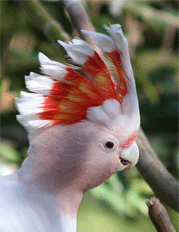N-Acetylcarnosine for Pets, too!
Dog cataract - Canine Cataract Reversal using
N-Acetyl-Carnosine Nu-Eyes™ Cataract Eye Drops
Non-Invasive Cataract Reversal for Animals - Clinically Proven Safe and
Effective!
In 2004, a study performed at the Queen's Veterinary School at the University of Cambridge in the UK, evaluated a population of 2000 dogs in order to determine the prevalence of cataract. The researchers found that 50% of the dogs showed cataract at the average age of 9.4 years. The researchers found that by the age of 13.5 years, ALL of the dogs in the study were affected by some degree of cataract.
As a pet owner, you no doubt love your pet immensely and want to do whatever you can to keep them happy and healthy and as a part of your family as long as possible. The average cost of cataract surgery for a pet is $2000-3000! Many pet owners simply cannot afford cataract surgery for their pet.
As a loving pet owner you no longer need to agonize over watching your dog's quality of life deteriorate as a result of debilitating cataracts. You no longer have to feel guilty about not being able to afford cataract surgery. Nu-Eyes™ N-acetylcarnosine eye drops are the economical, safe and effective option in reversing your dog's cataract. The research confirms what customer and veterinarian testimonials have been been reporting.
 "Dr. Babizhayev, as a
veterinarian I want to let you know that I am now recommending
N-acetylcarnosine (Nu-Eyes™) for the treatment of canine
cataracts. After applying Nu-Eyes™ eye drops to the my 15
year old miniature pinscher, "Skeeter", for one year, the cataract in his
right eye has diminished! I have come to the conclusion that your cataract eye
drops are a modern scientific miracle for our pets. From my observations it
has prevented Skeeter from going blind and improved his overall aging
experience! If your pet has cataracts ask your veterinarian or a pet
ophthalmologist about this amazing product."
"Dr. Babizhayev, as a
veterinarian I want to let you know that I am now recommending
N-acetylcarnosine (Nu-Eyes™) for the treatment of canine
cataracts. After applying Nu-Eyes™ eye drops to the my 15
year old miniature pinscher, "Skeeter", for one year, the cataract in his
right eye has diminished! I have come to the conclusion that your cataract eye
drops are a modern scientific miracle for our pets. From my observations it
has prevented Skeeter from going blind and improved his overall aging
experience! If your pet has cataracts ask your veterinarian or a pet
ophthalmologist about this amazing product."
Jack Stephans DVM - Pets Best Insurance / www.petsbest.com
The testing of various anti-glycation agents over nearly a decade by a Russian research team led to the development of N-acetylcarnosine as a delivery system for the natural eye anti-oxidant of L-carnosine. In a study of 30 dogs with cataracts, 1% N-acetylcarnosine eye drops or a placebo solution were applied to the eyes twice daily for 6 months. After 6 months, researchers documented a full 96% of the canine eyes that had been treated with N-acetylcarnosine showed improvement in the lens based on ophthalmologist slit image and retroillumination photographs.
 We have had customers who have successfully treated not only
their dogs but also horses, rabbits and sheep. We even have a customer
treating a cockatoo.
We have had customers who have successfully treated not only
their dogs but also horses, rabbits and sheep. We even have a customer
treating a cockatoo.
"The treatment of age-related cataracts in canines and rabbits has been conducted and the efficacy of using N-Acetylcarnosine for cataract treatment was established. The striking results in canines and rabbits for both cataract reversal and prevention of lens opacities are clear."
References
1. Babizhayev, M. A., Deyev, A. I., Yermakova, V.N., Remenshchikov, V. V., Bours, J. Revival of lens transparency with N-acetylcarnosine. Current Drug Therapy, 2006, 1:91-116.2. Williams, D.L., Heath, M.F., Wallis, C. Prevalence of canine cataract: preliminary results of a cross-sectional study. Veterinary Ophthalmology, 2004;7(1);29-35.



